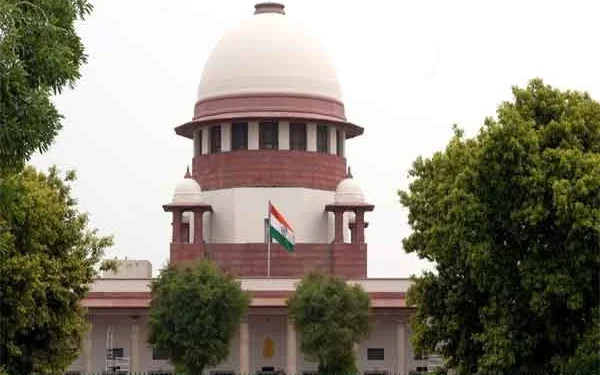Lagatar24 Desk
New Delhi: The Supreme Court on Wednesday came down hard on the central government as well as Punjab and Haryana over their failure to enforce anti-pollution measures to combat stubble burning, which contributes to Delhi’s toxic air every year. The court’s scathing remarks came as air quality in Delhi and the National Capital Region (NCR) remained in the ‘very poor’ category, raising concerns about the impending respiratory health crisis.
A bench led by Justice Abhay S Oka, along with Justices A Amanullah and AG Masih, dismissed the efforts of the Punjab and Haryana governments to curb farm fires as “mere eyewash.” The court criticized the states for failing to penalize farmers who burn agricultural waste and questioned the Haryana government’s claim of success in controlling farm fires, implying it might be a deliberate strategy to favor some farmers.
Lack of Enforcement and Prosecution
The court was particularly critical of the lack of significant penalties or prosecution of farmers violating stubble-burning laws. Justice Oka noted that in Punjab, only ₹11 lakh had been recovered from 417 violators, which he called “nominal” fines of ₹2,500 to ₹5,000. The court questioned why 684 violators in Punjab had not been penalized at all, pointing out that this essentially gave violators a license to continue.
The Haryana government’s claims of success in reducing the number of farm fires were met with skepticism by the court. While Haryana reported a significant drop from nearly 10,000 farm fires to just 655, Justice Oka questioned the state’s enforcement, as only 32 police cases had been registered.
Criticism of Central Government and CAQM
The court also targeted the central government for its “toothless” environmental protection laws, highlighting the ineffectiveness of the Commission for Air Quality Management (CAQM) Act of 2021. The bench pointed out that while the law existed, there was no administrative machinery to ensure its implementation.
The court reprimanded the central government for not fully operationalizing Section 15 of the Environmental Protection Act, which outlines penalties for violating anti-pollution laws. Additional Solicitor General Aishwarya Bhati assured the court that it would be operational within 10 days.
Political Reasons and Failure to Implement the Law
In a stinging rebuke, the Supreme Court suggested that there might be “political reasons” for the failure to enforce anti-pollution laws. The court said that if the states were genuinely interested in implementing the law, there would have been at least one prosecution.
Last week, the court had expressed its frustration over “political reasons” being used as an excuse for inaction. Justice Oka reiterated that the issue at hand is the implementation of statutory directions and warned officials from the CAQM of potential consequences if they continue to fail in their duties.
Growing Concerns as Winter Approaches
As winter nears, air quality levels in Delhi and NCR typically plummet to hazardous levels, often exceeding the maximum measurable value of 500 on the air quality index. This annual pattern leads to a spike in respiratory illnesses.
In response, the Delhi government has activated the second phase of its anti-pollution Graded Response Action Plan, including an immediate ban on firecrackers as part of its efforts to mitigate the effects of air pollution during the upcoming Diwali season.







